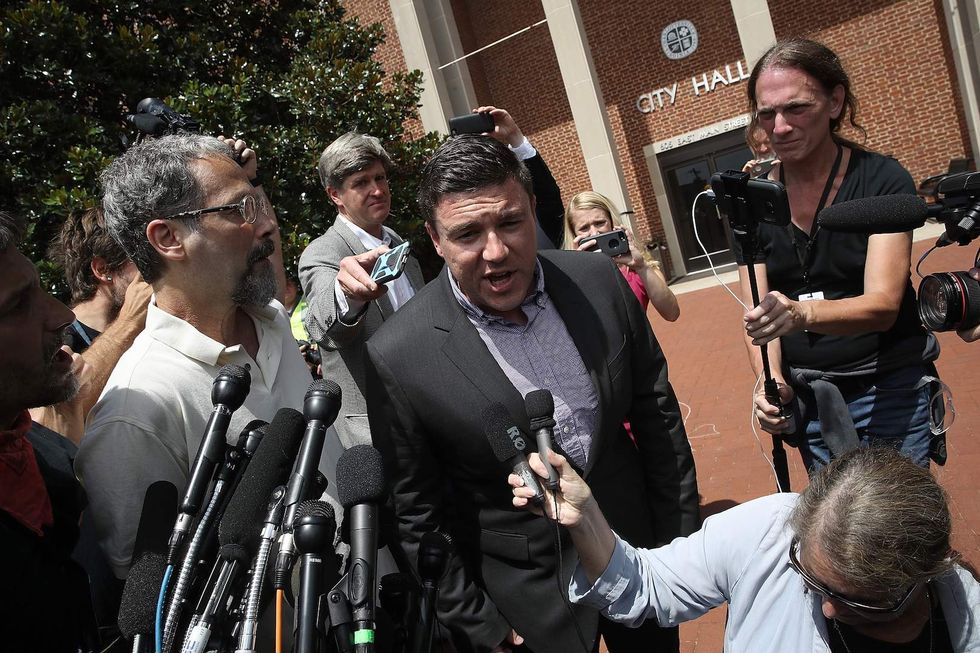
Twitter verified the account of Jason Kessler, organizer of the Unite the Right rally in Charlottesville, sparking outrage from other users. (Win McNamee/Getty Images)

Twitter verified the account of Jason Kessler, organizer of the Unite the Right rally in Charlottesville, Virginia, that resulted in Heather Heyer’s death.
&ref_url=https%3A%2F%2Fwww.usatoday.com%2Fstory%2Ftech%2F2017%2F11%2F09%2Ftwitter-halts-verification-over-checkmark-charlottesville-rally-organizer%2F848314001%2FOther Twitter users responded with such fierce anger that Twitter has now suspended the account verification process altogether.
“We recognize that we have created this confusion and need to resolve it,” the company announced in a tweet. “We have paused all general verifications while we work and will report back soon.”
Twitter verifies accounts that belong to people of public interest, which usually means celebrities, politicians and journalists.
It started off as a way for people to differentiate between real accounts and hoax accounts; it was simply identity verification.
Over time, the blue verified icon became a status symbol; if you have one by your name, you must be somebody important. Verified accounts also take priority in searches.
So when Twitter gave Kessler, who sometimes tweets racially and politically inflammatory content and has a confederate flag as his background image, the coveted verified status, other users attacked the company for what they viewed as an endorsement of a white supremacist.
&ref_url=https%3A%2F%2Fwww.huffingtonpost.com%2Fentry%2Ftwitter-jason-kessler-verified_us_5a03c4a6e4b03deac08b1ff1 &ref_url=https%3A%2F%2Fwww.huffingtonpost.com%2Fentry%2Ftwitter-jason-kessler-verified_us_5a03c4a6e4b03deac08b1ff1It’s not even clear whether there’s something to be “fixed.” Twitter has never been transparent about exactly what criteria warrants a verified account, and if the company begins making subjective decisions about verification based on tweet content, it just opens itself up to more controversy.
Twitter’s statement didn’t do much to satisfy those upset with Kessler’s verification. It essentially said that the problem is users misinterpreting what verification means. Still, they said they’re going to work on it.
“Verification was meant to authenticate identity and voice but it is interpreted as an endorsement or an indicator of importance,” the company said in a statement.
To add another layer of complexity, Twitter CEO Jack Dorsey has been vocal about his desire to eliminate violent groups and hate speech from the social media platform, an initiative that leads to the question of how to define a “violent group” and “hate speech.”